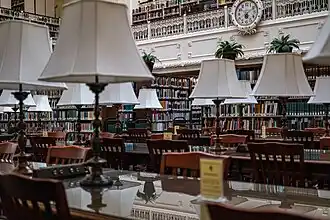
Historical societies are crucial institutions dedicated to preserving, studying, and interpreting the history and heritage of specific areas, groups, or subjects. These societies typically maintain archives and libraries, housing records essential for genealogical research.
Research your ancestors on MyHeritage
Purpose of historical societiesPurpose of historical societies
- Preservation: They collect, preserve, and maintain historical records, artifacts, and sites to ensure that the history is not lost to future generations.
- Education: They educate the public about the past through exhibitions, publications, lectures, and educational programs.
- Research: They provide resources for historical and genealogical research and often conduct their own research to expand the knowledge of their focus area.
- Community engagement: They foster a sense of community identity and pride by highlighting the unique history and heritage of the area or group they represent.
- Advocacy: They advocate for the preservation of historical sites and the protection of cultural heritage.
Types of historical societiesTypes of historical societies
- Local historical societies: Focus on preserving the history of a specific town, city, or region. Often involved in maintaining local archives, museums, and historical landmarks.
- State and regional historical societies: Cover the history of an entire state. Often manage larger archives and state history museums.
- National historical societies: Operate on a national level to preserve and promote the history of a country. Engage in broad historical research, publication, and education efforts.
- Ethnic or cultural historical societies: Focus on the history and heritage of specific ethnic or cultural groups. Preserve artifacts, documents, and traditions related to a particular community.
- Specialized historical societies: Concentrate on specific themes or periods in history, such as military history, industrial history, or women's history. Often engage in specialized research, exhibitions, and publications.
Information found at historical societiesInformation found at historical societies
- Archives and manuscripts: These include personal papers, letters, diaries, business records, and other primary documents that provide firsthand accounts of historical events and everyday life.
- Photographs and maps: Historical societies often have extensive collections of photographs, maps, and other visual materials that document changes in landscapes, buildings, and communities over time.
- Books and periodicals: Many societies maintain libraries with books, journals, newspapers, and periodicals related to their area of focus. These can include local histories, genealogies, and scholarly works.
- Artifacts and objects: Collections of artifacts, such as tools, clothing, furniture, and other objects, can offer insights into the material culture and daily life of past societies.
- Genealogical records: These might include birth, marriage, and death records, as well as census data, cemetery records, and family histories, useful for genealogical research.
- Oral histories: Recorded interviews with community members that capture personal recollections and stories about the past.
- Exhibits and displays: Historical societies often have exhibits showcasing significant events, people, and themes from the past, sometimes including interactive or multimedia elements.
- Educational programs and events: These can include lectures, workshops, tours, and other programs aimed at educating the public about history.
- Digital collections: Many historical societies are digitizing their collections, making them accessible online. This can include scanned documents, photographs, and digital exhibits.
- Research assistance: Staff and volunteers at historical societies can assist with research, helping visitors locate and interpret historical materials.
Researching at historical societiesResearching at historical societies
Researching at historical societies can be productive and help make advances in genealogy research. Here are some tips and guidelines to make the most out of a visit:
- Identifying relevant historical societies: Search online and determine which historical society to visit for genealogical research.
- Planning your visit or research request: Call ahead if planning a research visit and check on hours of operation as well as procedures such as using a camera or scanner, if day lockers are available for storing personal items, etc. In addition, ask if requests for specific records can be fulfilled via email.
- Utilizing online catalogs and databases: Prior to visiting check the online resources at the historical society. Make sure the records required for research are available. Write down any call numbers or record set numbers ahead of time.
- Requesting copies of documents and records: Determine how copies of records can be made. Some societies charge a daily fee for use of a camera or scanner, while others still utilize photocopiers.
- Engaging with staff and volunteers: At arrival check with staff and ask for a tour of the facility. Let staff know the record types needed or the area of research.
See alsoSee also
Explore more about historical societiesExplore more about historical societies
- 2022 National Census - American Association for State and Local History

